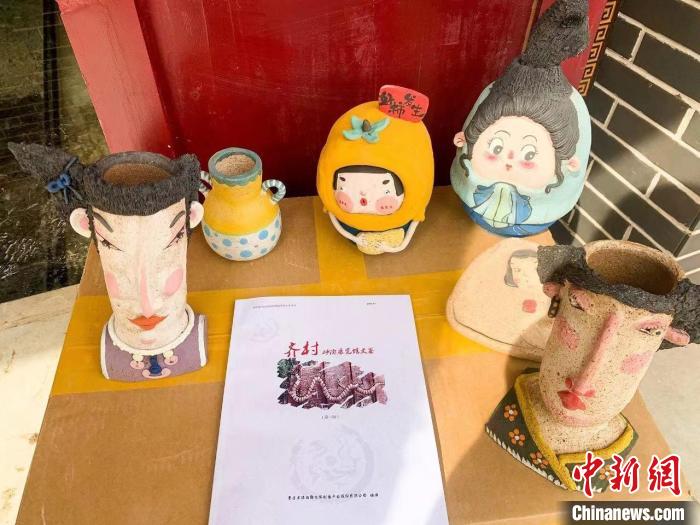Ancient pottery craft kept alive through generations of efforts
From:People's Daily OnlineAuthor: 2023-03-23 09:39
At a pottery workshop in Qicun township, Zaozhuang city, east China's Shandong Province, more than 50 workers were making pottery ware. After being processed through 72 complex procedures, the products will be sold to places across the country and even to European countries.

A pottery craft inheritor teaches a primary school student how to make a pottery product in Qicun township, Zaozhuang city, east China's Shandong Province. (Photo/Sun Zhongzhe)
The pottery craft in Qicun township enjoys a history of over 7,000 years.
Xiang Shoufu is a fourth-generation inheritor of the pottery craft in his family. According to him, the pottery items produced in the kilns of his family are mainly handicrafts with characteristics of both pottery and porcelain products, including pots, jars, tubs and bottles.
The Xiang pottery workshop has been passed on to the sixth generation of inheritor, which makes the Xiang family the only one in the locality that has kept inheriting the traditional pottery craft.
Xiang Shoufu introduced that the pottery craft and the construction of pottery kilns in Qicun township have been recognized as provincial-level intangible cultural heritage projects in Shandong Province, and the Xiang pottery workshop has been listed as a provincial-level intangible cultural heritage protection unit in Shandong.

A craftsman makes a pottery product. (Photo/Gao Wei)
"The inheritors of the Xiang family have not only carried forward the ancient techniques from their ancestors, but also made breakthroughs in the selection of raw materials, product usability, innovations and research on the formula of the pottery products. We are able to produce over 500 kinds of pottery products," said Xiang Shoufu.
Xiang Biao, a man born after 1985, is a sixth-generation inheritor of the Xiang pottery craft. While preserving the traditional 72 procedures for making pottery products, he has transformed the traditional kilns, which caused environmental pollution, into environmentally friendly and energy-saving facilities and breathed new life into the pottery products by adding new elements to them.
Xiang Biao's team can make and sell more than 200,000 pieces of pottery ware a year, achieving annual sales of 4 million yuan ($581,500). His business has helped more than 50 rural workers secure jobs.

Photo shows pottery ware made in Qicun township, Zaozhuang city, east China's Shandong Province. (Photo/Cai Chengfei)

Students learn about pottery ware. (Photo/Sun Zhongzhe)

A saleswoman promotes pottery products during a livestream. (Photo/Gao Wei)
Edit:董丽娜
The copyright of the article and the picture belongs to the original author. If there is any infringement, please contact to delete it